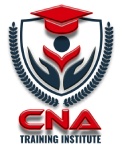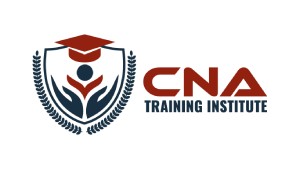The healthcare industry is undergoing a major transformation, thanks to two factors: the increasing prevalence of chronic diseases and the transition to electronic health records.
These have led to the use of new coding systems and standards that are indispensable for communicating and managing health information. In this blog post, we will talk about the best career opportunities after completing a medical coding course in Dubai.
Top 10 Career Opportunities in Medical Coding
Depending on your education, experience, certification, and interest, you can pursue one of these top 10 career opportunities in medical coding:
- Certified Professional Coder (CPC)
This is the most common and recognized credential for medical coders who work in physician offices or outpatient settings. CPCs are proficient in coding for CPT, HCPCS Level II, and ICD-10-CM codes. They also have knowledge of anatomy, physiology, medical terminology, compliance, and reimbursement rules. To become a CPC, you need to pass the CPC exam administered by the American Academy of Professional Coders (AAPC).
- Certified Outpatient Coder (COC)
Designed for medical coders who work in outpatient hospital or facility settings, COCs are skilled in coding for CPT, HCPCS Level II, and ICD-10-CM codes as well as modifiers, payment systems, regulations, and guidelines for outpatient services. To become a COC, you need to pass the COC exam administered by AAPC.
- Certified Inpatient Coder (CIC)
This is ideal for medical coders who work in inpatient hospital or facility settings. CICs are experts in coding for ICD-10-CM codes as well as diagnosis-related groups (DRGs), present-on-admission (POA) indicators, discharge status codes, quality measures, and documentation requirements for inpatient services. To become a CIC, you need to pass the CIC exam administered by AAPC.
- Certified Coding Specialist (CCS)
Offered by the American Health Information Management Association (AHIMA) for medical coders, CCSs are proficient in coding for CPT, HCPCS Level II, ICD-10-CM/PCS codes as well as abstracting clinical data from health records. They also have knowledge of anatomy, physiology, pharmacology, disease processes, medical terminology, compliance, and reimbursement methodologies. To become a CCS, you need to pass the CCS exam administered by AHIMA.
- Certified Risk Adjustment Coder (CRC)
This credential is suitable for medical coders who work in risk adjustment payment models, such as Medicare Advantage, Medicaid managed care, and Affordable Care Act plans. CRCs are adept at coding for ICD-10-CM codes as well as applying risk adjustment methodologies, guidelines, and best practices. They also have knowledge of chronic conditions, hierarchical condition categories (HCCs), quality measures, and documentation standards for risk adjustment purposes. To become a CRC, you need to pass the CRC exam administered by AAPC.
- Specialty Coding Certification
These credentials are available for medical coders who want to demonstrate their expertise in a specialty like cardiology, surgery, oncology, radiology, or emergency department. Specialty coding certifications are offered by both AAPC and AHIMA, and they require passing a specialty-specific exam along with certain eligibility criteria.
- Certified Professional Medical Auditor (CPMA)
This credential is for medical coders who want to advance their careers as medical auditors. CPMAs are skilled in auditing medical records for compliance, accuracy, and quality. They also have knowledge of coding guidelines, regulations, policies, and procedures for various healthcare settings and payers. To become a CPMA, you need to pass the CPMA exam administered by AAPC.
- Certified Documentation Expert Outpatient (CDEO)
This is for medical coders who want to specialize in clinical documentation improvement (CDI) for outpatient services. CDEOs are proficient in reviewing and analyzing outpatient documentation for completeness, accuracy, and specificity. They also have knowledge of coding systems, guidelines, regulations, and best practices for outpatient CDI. To become a CDEO, you need to pass the CDEO exam administered by AAPC.
- Certified Professional Compliance Officer (CPCO)
This credential is for medical coders who want to pursue a career as compliance officers or managers. CPCOs are knowledgeable in developing and implementing compliance programs for healthcare organizations. They also have knowledge of federal and state laws, regulations, policies, and standards related to healthcare compliance. To become a CPCO, you need to pass the CPCO exam administered by AAPC.
- Remote Medical Coder
This is not a credential but a career option for medical coders who want to work from home or anywhere with an internet connection. Remote medical coders perform the same duties as onsite medical coders but with more flexibility and autonomy. They can work for various employers or clients, such as hospitals, clinics, insurance companies, or coding agencies. To become a remote medical coder, you need to have the same qualifications and skills as an onsite medical coder, as well as reliable technology, communication, and time management skills.
How to Prepare for a Career in Medical Coding
To prepare for a career in medical coding, you need to follow these steps:
- Join a medical coding training program that teaches you the essential topics and skills for this profession. Of course, medical coding has its own qualifications, and there are things you can do to equip yourself for a medical coding course.
- Get certified in the medical coding specialty that interests you. You can start with a general certification, such as CPC, COC, CIC, or CCS, and then add more credentials as you advance your career.
- Gain experience in medical coding by working in various healthcare settings or applying for remote or freelance jobs.
Conclusion
With a positive and promising job outlook, medical coding opens up a lot of opportunities now and in the future. If you want to enroll in the most promising medical coding course in Dubai, with many satisfied learners who have now continued their journey as top medical coders, then give us a call and we’ll book your seat.

